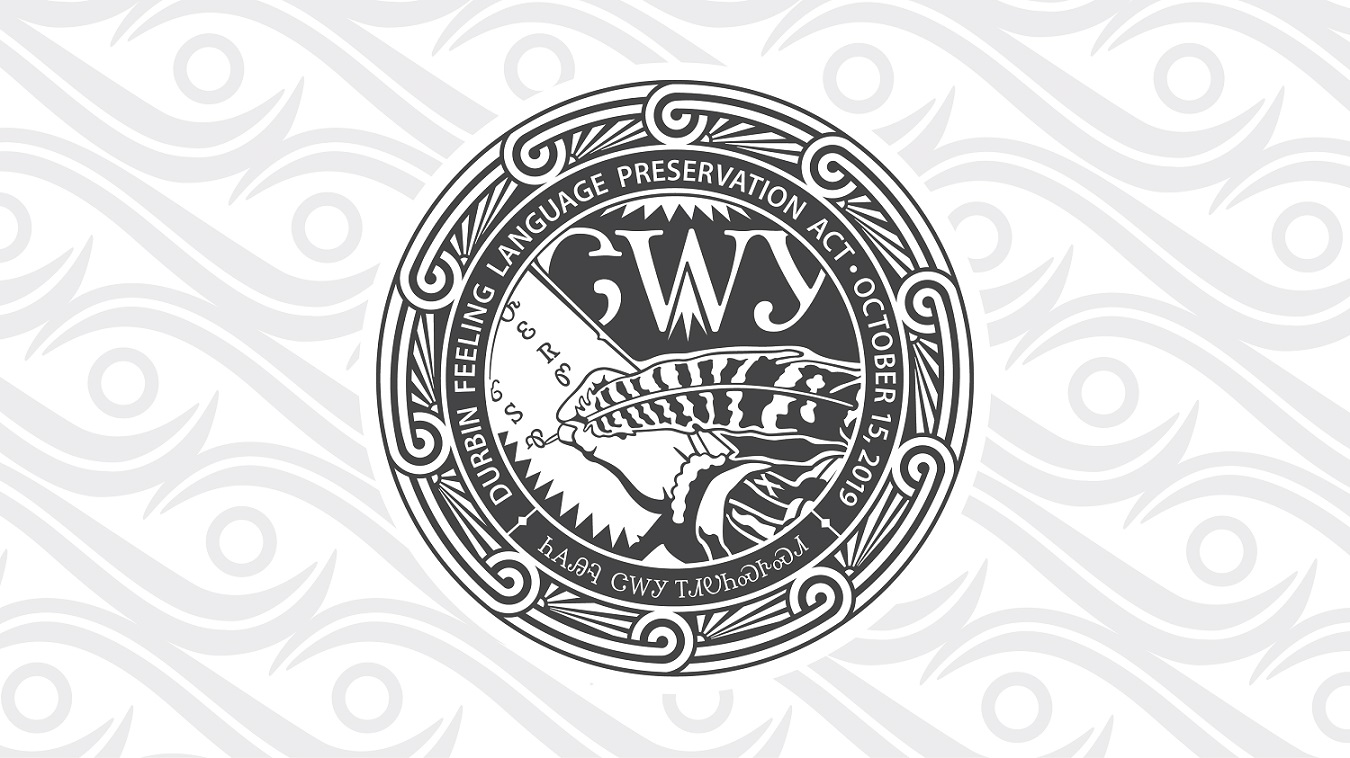TAHLEQUAH, Okla. — Cherokee Nation Principal Chief Chuck Hoskin Jr. and Deputy Chief Bryan Warner are proposing to make permanent the landmark 2019 law aimed at revitalizing the Cherokee language.
The proposed permanent reauthorization of the Durbin Feeling Language Preservation Act locks in minimum operating funding at $18 million annually and dedicates $35 million for new language capital projects.
In 2019 Chief Hoskin, Deputy Chief Warner and the Council of the Cherokee Nation enacted the Durbin Feeling Language Preservation Act, representing the largest language investment in Cherokee history.
“Revitalizing the Cherokee language is not simply a goal,” said Chief Hoskin. “Cherokee language revitalization is an existential question: Are we committed, for the sake of future generations, to keep alive what it means to be Cherokee? Our proposed reauthorization of the Durbin Feeling Language Preservation Act with annual funding and dedicated projects shows our commitment and answers that question with a resounding ‘yes.’”
The legislation, to be considered by the Council of the Cherokee Nation later this month, deems the loss of the Cherokee language to be a national emergency for the Cherokee people and includes:
- Minimum $18 million annual operating funding for language programs, with provisions to encourage annual increases.
- $35 million in new capital projects, including a proposed $30 million Cherokee language immersion middle school to extend enrollment and space for the current pre-K through 8th-grade language immersion program.
- Formal designation of language campuses in Tahlequah and Greasy as well as a new language satellite office in Kenwood.
- Authorization of eight core language programs and services.
- Protection of more than 1,400 acres of trust land in Delaware County as the “Kenwood Cherokee Language and Culture Preserve,” to be developed in the future as a new language campus.
- A required biennial “State of the Cherokee Language” report to measure the progress of language programs and strengthen accountability for success.
“If we are to revitalize our precious language, we must put serious resources toward this vital effort,” said Deputy Chief Warner. “We cannot afford to be timid, which is why this proposal is so bold and will create long-lasting changes to protect and teach our language.”
Howard Paden, the tribe’s Executive Director of Language Programs, said the 2019 law is producing results, but that the proposed permanent law would “meet the urgency of the moment.”
“Reauthorizing the Durbin Feeling Language Act and making it permanent is amazing. It continues to further the legacy of its namesake,” Paden said. “It ensures our survival as a Cherokee people by helping us keep what Creator gave us.”
Councilor Joshua Sam, of Stilwell, a sponsor of the legislation, said the proposed law is also in keeping with his oath of office.
“We all take an oath that we will do everything in our power to ‘promote the culture, heritage and traditions of the Cherokee Nation’,” said Councilor Sam. “The Durbin Feeling Language Preservation Act is how we put that pledge into action, and it does it in a way that not only helps save our language, but also improves the quality of life for our elder fluent speakers.”
Cherokee Nation estimates that it has fewer than 2,000 first-language fluent speakers remaining and most are over the age of 70.
The existing law, set to expire at the end of the current fiscal year, expanded various language programs, created new language programs and services, and funded the construction of the $20 million Durbin Feeling Language Center in Tahlequah.
The 2019 law also led to the opening of a second immersion campus in the Adair County community of Greasy, quadrupled the size of the Cherokee Language Master / Apprentice Program, constructed a “speaker village” in Tahlequah and established a new Speaker Services program to address quality of life issues for elder fluent speakers.
Chief Hoskin first proposed reauthorizing the Durbin Feeling Act during his State of the Nation Address in September and again at the historic gathering of fluent speakers in Tahlequah in October.
The law is named for the late Durbin Feeling, a Cherokee linguist regarded as the modern-day Sequoyah. Feeling passed away in 2020.

